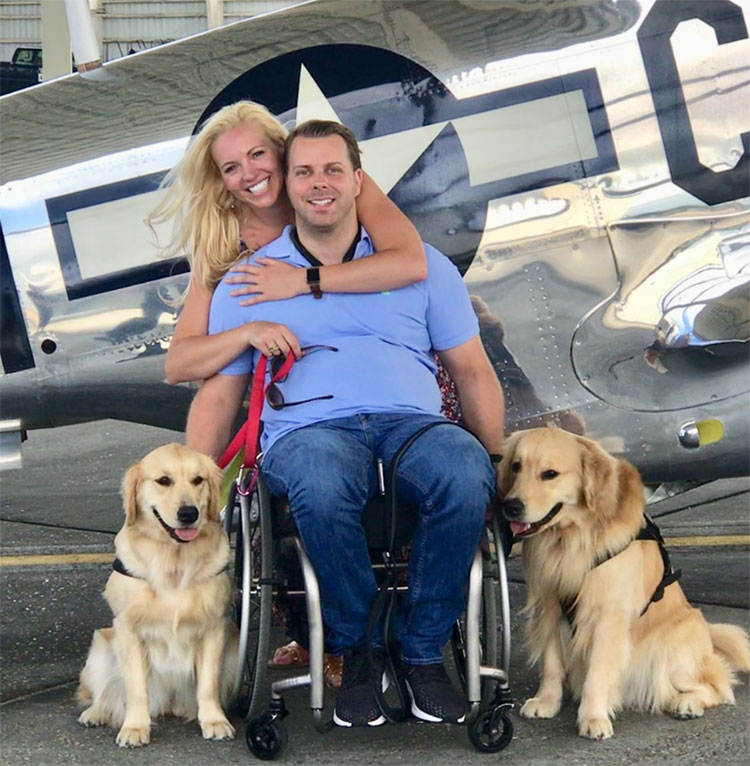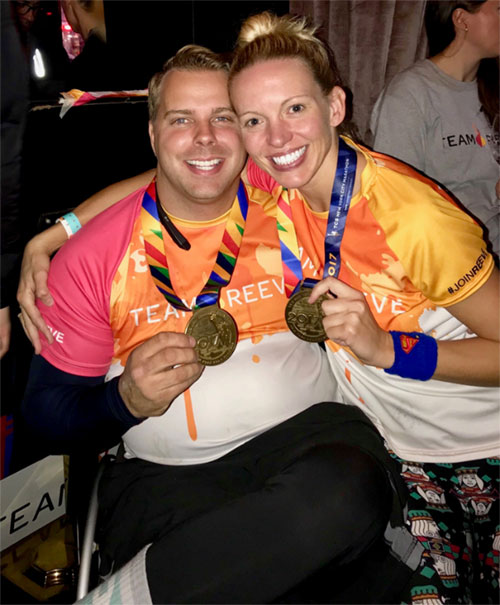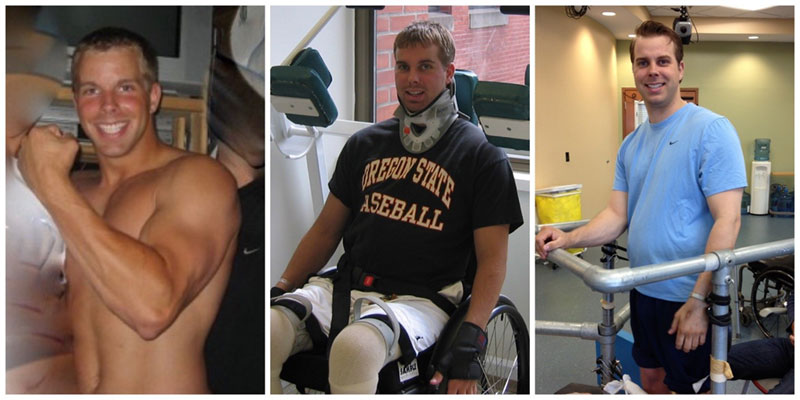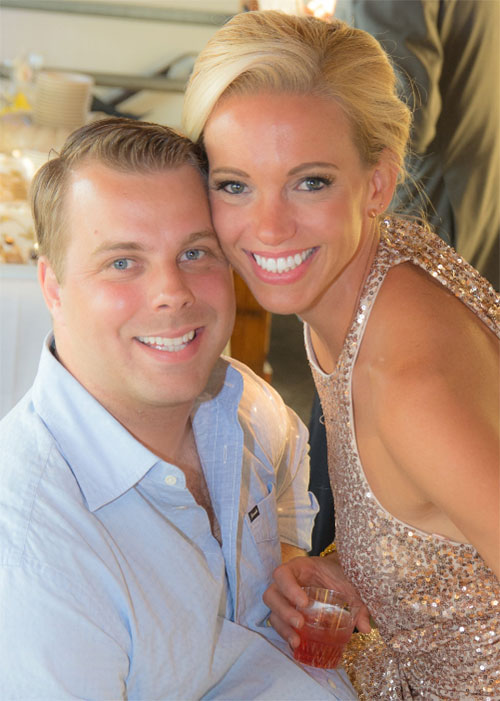In July 2006, then 20-year old Rob Summers was a Division 1 Oregon State Baseball pitcher and an MLB prospect. The evening of July 11th, Rob went out to the driveway to retrieve a gym bag from his car so he would be ready for a 6:00 am workout the next day. A driver veered off the road, jumped the curb, slammed into him, and kept driving.
Rob’s body flipped over the hood of his car. He laid bleeding in his driveway for five hours before a man walking his dog in the early morning hours noticed him and called for help. Rob never made it to his morning workout.

The accident broke Rob's neck at the C6 and hospitalized him in the ICU as a quadriplegic (paralysis in all four limbs). When Rob regained consciousness, he could only move his right pointer finger in all of his body- then uncontrolled finger movement in his left hand. The doctors advised Rob, “What [function] you have now, is it. There is no cure.” Rob’s response? “Obviously you don’t know me very well. I will overcome it.” Rob was determined and his determination has paid off in so many ways.
Rob attended in-patient therapy to learn basic necessities-he wanted more. Rob attended an exercise-based rehabilitation-he wanted more. Rob’s supportive parents sent over 200 emails around the world to research centers, rehabs, etc. looking for “more”.
Rob discovered the Christopher & Dana Reeve Foundation. A chance meeting with Dr. Susan Harkema, with the University of Louisville and the Reeve Foundation/Frazier Rehab Institute, was the springboard to Rob’s “more”. Rob learned of the research projects being explored in Louisville so in September 2007, not only did Rob fly to Louisville to look into these projects, but when he learned of the Epidural Stimulation project, Rob immediately decided to stay in Louisville. Rob contacted Dr. Harkema and said,
“I’m here and ready!”
Rob worked hard all day, every day.

After denying approval twice, The FDA finally approved the epidural stimulation procedure in its experimental phase. On December 7, 2009, Rob became the first person in the world to undergo this procedure where 16 electrodes were implanted on his spine between S1 and L1 and a computer in his back, in hopes of stimulating the spinal cord to regain movement. Rob remembers the lead doctor saying to the over 38 medical professionals assisting and/or witnessing the surgery say, “Ladies and Gentlemen, we are about to witness history.” And that they did.
Three days into therapy after that surgery, Rob stood on his own for the first time in 4 years! Rob felt muscle fatigue. Rob became able to move his hands, toes, ankles, and hips. In 2018, the computer box was “upgraded” and changed out to Bluetooth.
Today, Rob’s left leg can take steps and his right leg can “drive”. Rob is determined to take those steps one day soon! The “side effects” of the epidural stimulation affecting secondary functions are just as, if not more, important to Rob and most people with spinal-cord injuries. He has return of bowel, bladder and sexual function. Rob now has better circulation and his blood pressure is more in control. The Reeve Foundation (ironically, Rob’s nickname was “Superman” before the accident) has assisted Rob with getting More!

Rob's Progression
It is also important to note that Rob now has use of his upper body-arms and hands. He can do push ups and pull ups. These functions are a product of Rob’s relentless hard work and desire to want more and are not related to the epidural stimulation.

Rob has an amazing support system; his biggest cheerleader being his girlfriend, Julie Grauert, a former morning traffic anchor. Rob met Julie on April 9, 2014, when he was a guest on her show in New York to talk about a medical breakthrough- him.
Julie attends therapy with Rob daily and noted the mental aspect of his therapy is just as critical. Julie says at first she thought Rob was upset with her because he doesn’t talk to her while he is at therapy. But, that’s not the case at all; but rather Rob must focus so hard on moving and it takes all of his concentration.
Julie will be running the TCS New York City Marathon on November 3rd, again, for the Christopher & Dana Reeve Foundation because the money raised is funding science that is making people move again and have More!
25 people with spinal-cord injuries are currently implanted with the epidural stimulation. Once 40 people are implanted, The Reeve Foundation can apply to get FDA approval to take the approval from experimental labs to clinical approval.
The Reeve Foundation funded Rob’s surgery and is still funding surgeries in other participants in pursuit of U.S. Food and Drug Administration approval so this surgery can be available to everyone!
Author: Rebecca Pascarell
Rebecca Pascarell is an attorney working with the Chaffin Luhana Foundation who is dedicated to Peloton cycling and endurance sports. She is an advocate for various causes/organizations, including The Reeve Foundation, The American Heart Association and The American Stroke Association.

